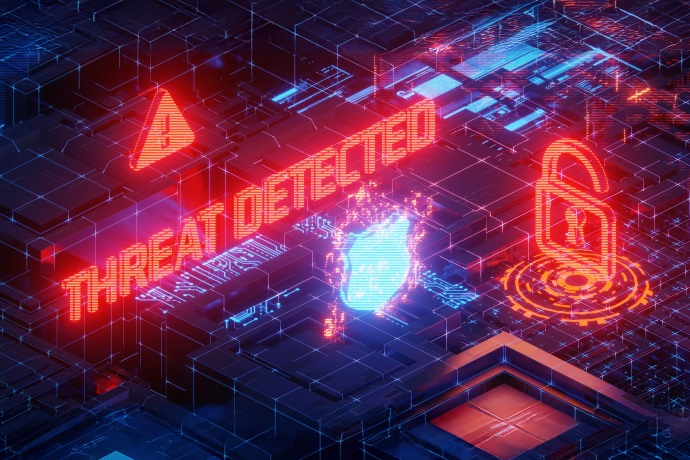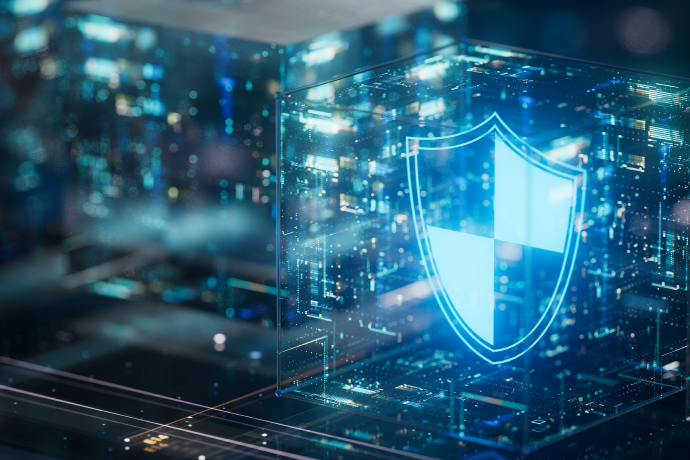Ransomware attacks have become one of the most significant threats to enterprises. Recently, 300 small Indian banks went offline temporarily following a ransomware attack, according to The Economic Times. Ransomware can halt business operations, lead to severe financial losses, and erode customer trust. As such, protecting endpoints—the gateways to enterprise networks—has never been more critical.
Understanding Ransomware Threats
Ransomware is a type of malware that encrypts a victim’s data, rendering it inaccessible until a ransom is paid to the attacker. The sheer speed at which these attacks can spread, combined with their ability to paralyse critical systems, makes them particularly dangerous. Modern ransomware tactics often include data exfiltration, where attackers not only encrypt data but also threaten to release sensitive information unless the ransom is paid.
Enterprises are prime targets for ransomware attacks due to the potential high payouts, given the critical nature of their data and operations. Additionally, remote work environments, digital transformation initiatives, and the proliferation of IoT and cloud services have expanded the attack surface.
Why Traditional Security Measures Fall Short
Traditional antivirus and firewall solutions are insufficient to counter modern ransomware. These solutions typically rely on signature-based detection methods, which are ineffective against new and emerging ransomware variants that have no known signatures. Furthermore, ransomware can infiltrate through phishing emails, compromised websites, or even through supply chain vulnerabilities. Once inside the network, it can move laterally, evading detection until it is too late.
The key challenge with ransomware is the rapidity with which it can spread within a network, encrypting data across multiple endpoints in minutes. Thus, proactive detection, swift response, and containment are crucial. This is where EDR solutions offer distinct advantages over traditional approaches.
Importance of EDR Solutions in Ransomware Mitigation
Endpoint Detection and Response (EDR) solutions provide continuous monitoring and real-time detection of threats across enterprise endpoints. Unlike legacy security tools, EDR solutions focus on identifying suspicious behaviours and anomalies that may indicate the presence of ransomware, even before it can cause significant damage.
EDR works by continuously collecting data from endpoints, analysing it for unusual patterns, and triggering automated responses when potential threats are detected. This enables security teams to detect ransomware before it encrypts data and to isolate infected endpoints, preventing the malware from spreading further.
How EDR Solutions Help in Combating Ransomware
- Real-time Threat Detection: EDR solutions provide immediate visibility into potential ransomware activity. They detect anomalies such as unauthorised file encryption or unusual network traffic that may indicate an attack in progress.
- Behavioural Analysis: One of the most powerful aspects of EDR is its ability to recognise unusual behaviors indicative of ransomware. For example, an EDR solution might detect a process attempting to encrypt large volumes of files or block external connections typically associated with command-and-control communication. By monitoring behaviors rather than relying solely on known signatures, EDR provides protection against zero-day ransomware threats.
- Automated Response and Remediation: Ransomware often spreads rapidly, making manual response insufficient in many cases. EDR solutions can automatically isolate affected endpoints, terminate malicious processes, and restore files from backups before the damage escalates.
Yotta’s Suraksha EDR: A Comprehensive Solution for Ransomware Defense
As ransomware threats continue to evolve, enterprises require advanced EDR solutions that offer, not only protection, but also adaptability, scalability, and ease of use. Yotta’s Suraksha EDR provides a robust defense system, specifically designed to mitigate ransomware attacks through a suite of innovative features.
1. Real-time Threat Detection and Continuous Endpoint Visibility: Suraksha Managed EDR solution swiftly identifies and responds to advanced ransomware threats, minimising potential damage by ensuring continuous endpoint visibility. This ongoing monitoring keeps security teams aware of endpoint activities at all times, allowing them to act decisively at the first sign of suspicious behaviour.
2. Automated Response Actions and Behavioral Analytics: What sets Suraksha Managed Endpoint Detection and Response apart is its ability to automate threat remediation through predefined response actions. When ransomware is detected, the system can isolate affected devices, halt malicious processes, and roll back any unauthorised changes, all without requiring manual intervention. Its advanced behavioural analytics further enhance detection by identifying unusual patterns that may indicate a ransomware attack, such as unauthorised file modifications or large-scale encryption attempts.
3. Scalability and Threat Intelligence Integration: Suraksha Managed EDR scales seamlessly to meet the growing security demands of enterprises, ensuring that as an organisation expands, so does its protection. Its integration with external threat intelligence feeds keeps security teams informed about emerging ransomware variants and attack vectors.
Conclusion
The threat of ransomware is not going away, and as enterprises become more reliant on digital infrastructure, the risk only increases. EDR solutions like Suraksha Managed EDR offer proactive, scalable, and intelligent defense mechanisms required to protect endpoints from sophisticated ransomware attacks. With features such as real-time threat detection, automated response actions, and continuous monitoring, Suraksha Managed EDR enables enterprises to stay resilient in the face of evolving cyber threats.


